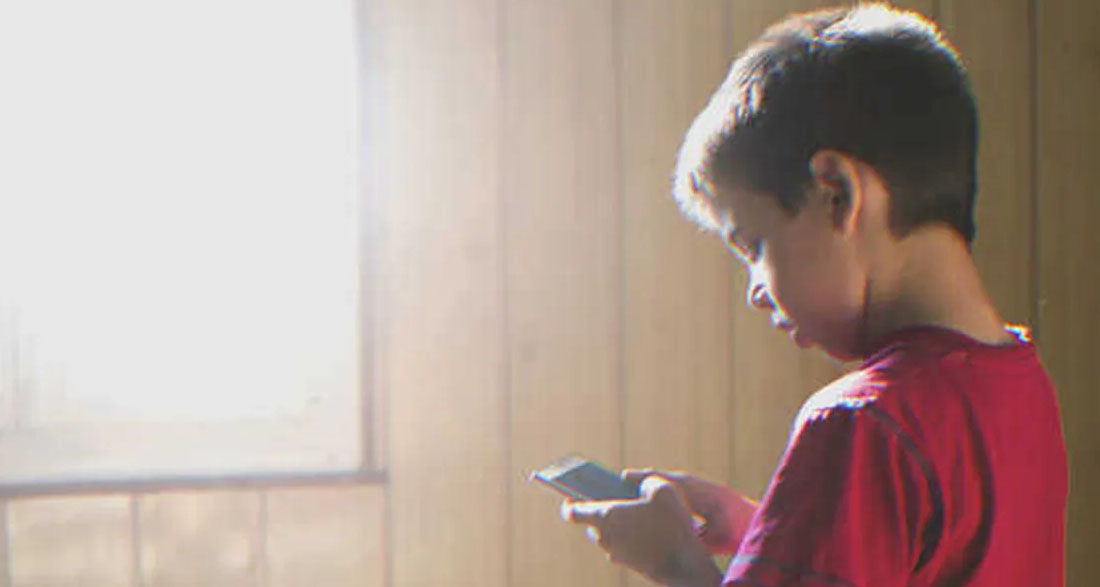The 911 Math Call That Saved a Life
Eight-year-old Ryan Crosby sat at the kitchen table, his eyes bouncing between his math book and the clock on the wall. It was already past 9:30 p.m., and he still had three questions left in his homework. He scratched his head and frowned.
“How am I supposed to solve this one?” he mumbled to himself.
He had tried everything—Googling the problem, flipping through the textbook again and again—but nothing made sense. His mom wasn’t home yet, and there was no one else to help. And then, he remembered what his mom always told him.
“If you ever need help and don’t know what to do, call 911.”
So, with tiny fingers and a racing heart, Ryan picked up the phone and dialed the number.
“911, what’s your emergency?” the operator answered.
Ryan hesitated for a second. Then he said:
“I need help… with my math homework.”
There was silence on the line.
“Come again?” the dispatcher asked, confused. “You need help with math??”
“Yes,” Ryan said. “My mom told me I should never be afraid to call 911 if I need help.”
The dispatcher, sitting in the emergency center in Madison, had heard a lot of strange calls over the years. Especially around Halloween, kids would prank-call the line just for fun. At first, she thought Ryan was doing the same.
But then she paused. Something about his voice… it didn’t sound like a joke.
“Ryan, this is not a homework hotline,” she said gently. “This number is for emergencies. Is everything else okay over there?”
“Yes… I mean… I just really need help with this math,” Ryan said. Then his voice dropped. “I wouldn’t have called if my mom was home…”
That sentence made the operator sit up straighter.
“Wait—your mom’s not there?” she asked quickly. “Is any adult with you?”
“No,” Ryan said softly. “It’s just me.”
“You’re all alone? At night?”
“Yeah. I got home from school and used my spare key. She wasn’t here.”
The operator’s heart skipped. This was no prank.
“Ryan, I need you to stay on the line with me, okay? Don’t go anywhere.”
While talking to Ryan, she signaled her team to start tracing the call and send officers to the address. Minutes later, flashing red and blue lights filled Ryan’s street.
Police knocked and entered the house. Ryan was there, sitting at the table with his math book still open.
“Hey buddy,” one officer said gently. “Where’s your mom?”
“She wasn’t home when I got back from school. I waited and waited, but she didn’t come.”
It was now 10 p.m., and Matilda Crosby—Ryan’s mom—was nowhere to be found. The officers immediately tried to call her, but her phone was turned off.
“Something isn’t right,” one officer whispered. “You stay with the boy. We’re going to look for her.”
The control room had already tracked the last place Matilda’s phone was active: on the outskirts of town. The team jumped into their patrol car and sped off.
The location led them to an old, quiet road near a deserted mill.
“Spread out and check everything,” the lead officer ordered.
For half an hour, they found nothing. Then a K9 unit arrived. Officer Daniels handed the dog, Caesar, one of Matilda’s scarves they had brought from her home.
Caesar sniffed it, barked, and started pulling toward a different direction.
“He’s got something! Let’s go!”
About ten minutes later, the team reached a lonely dirt road—and there, in the middle of it, was a car.
The officers approached with caution.
“Stay alert. Don’t touch anything yet,” one officer said.
As they got closer, they saw someone slumped inside.
“It’s her! It’s Matilda!”
She wasn’t moving. They broke open the car door and carefully pulled her out. An ambulance rushed to the scene and took her straight to the hospital.
Matilda finally opened her eyes in the emergency room. A police officer sat beside her.
“Mrs. Crosby? You’re okay now. Can you tell us what happened?”
She blinked slowly and whispered:
“I went to visit my sister this morning. On the way back, I thought I’d stop to shop… took a shortcut. But then I started feeling dizzy, and after that, I don’t remember anything.”
The doctor explained that Matilda had passed out due to heat exhaustion. Her phone had died, and she remained unconscious in the car for hours. Thankfully, one window had been slightly open, letting in some air—and that saved her life.
The officer leaned in and smiled.
“Your son called 911 tonight… and that one call saved your life.”
When Matilda finally arrived home, an officer escorted her. As soon as she stepped in, Ryan ran up to her and wrapped his little arms around her waist.
“Mommy! I missed you! Where were you?” he cried.
Matilda knelt down, hugging him tightly, tears falling from her eyes.
“I’m so sorry, baby… I’m so proud of you. You saved me,” she whispered.
Ryan didn’t fully understand what had happened—but his mother did. And in that moment, she knew she had done the right thing by teaching her son to always reach out for help.
The Lesson:
This story became a powerful example in their community. Matilda’s friends and family began teaching their own kids the importance of calling 911—not just for fires or break-ins, but for any situation where they feel unsafe, confused, or alone.
Even though Ryan dialed 911 hoping for math help, what he really did was something far greater.
He saved a life.
And that’s a lesson everyone should remember:
Never ignore a child when they say something feels wrong.
Never be afraid to ask for help.
And never underestimate the power of one phone call.

